Explore online Health Science degree programs. Compare schools and see what you could be doing after graduation.

An online health science degree can help prepare you for work in many different industries, including education, public health, and healthcare administration. The job market is expected to grow by 15%, and graduates typically earn between $40,000 and $127,000 (Bureau of Labor Statistics).
Editorial Listing ShortCode:
You can get everything from an associate degree to a doctorate, and if you choose the right school, you won’t even have to step foot in a classroom. It can be done completely online.
Types of Online Health Science Degrees
There are many different specializations, and depending on what you want to study and where you want to work, you can choose from an assortment of majors, minors, certificates, licenses, and degree concentrations.
Click on an area that interests you to jump to that section of the page.
The first step of getting this degree is figuring out where your interests lie and understanding all the career possibilities you can do with a health science degree.
The first step of getting a health science degree is figuring out where your interests lie.
Health Science – General

A general health science degree is designed to give students a broad-spectrum look at health and healthcare. Typical studies include things like biology, chemistry, anatomy, policy, and terminology. Students are also given opportunities to take labs and get fieldwork experience.
You can work in both clinical and non-clinical settings with a health science degree. If you want to be a medical professional, you might be interested in a career as a paramedic, surgical assistant, or lab technician.
Editorial Listing ShortCode:
If you prefer to work behind the sciences, you might enjoy a job as a hospital administrator or pharmaceutical salesman.
You can obtain a health science degree on every level, so the right one for you will depend on your goals. You might want an associate degree just to qualify for entry-level jobs in your chosen field, or you might prefer to go all of the way to a PhD and a six-figure salary. It’s up to you.
Gerontology

Gerontology is the study of aging and the elderly. It’s another field with many different specialties, so you could wind up working in a lab, hospital, nursing home, social agency, or even a courtroom.
Here are a few fields of interest in gerontology:
- Biogerontology
- Social gerontology
- Environmental gerontology
- Jurisprudential gerontology
Editorial Listing ShortCode:
Would you like a hands-on job helping the elderly? You can take nursing classes and become a home health aide or occupational therapy assistant. Are you good at paperwork? Consider a career as a social worker or welfare advocate for senior citizens.
There are also science jobs available for gerontologists. These tend to be focused on the physical and psychological effects of aging, and they can include trials, samples, studies, and research projects.
Healthcare Administration

Doctors aren’t the only important people in a hospital. Behind the scenes, healthcare administrators handle everything from intake papers to insurance claims, and they play a vital role in keeping everything afloat.
If you’re interested in healthcare administration, you could become an office worker, clinic manager, or hospital administrator. You could talk to patients, manage budgets, juggle schedules, train new employees, and create healthcare programs for the public.
The pay can be impressive. According to the U.S. Bureau of Labor Statistics, the median salary of medical and health services managers is a whopping $104,280 per year.
Editorial Listing ShortCode:
While this is a management position and not something that you should expect to get right out of school, it’s definitely a goal that you could work towards long-term.
Consider a career in healthcare administration if you’re an efficient, organized type of person who isn’t afraid of the hard work required to keep the healthcare industry running.
Health Informatics

Also called “health information systems,” health informatics is the management of data. It’s mostly centered around patient data, but it can be applied to other types as well.
As for health informatics jobs, they can be technical or clerical. You can input the data that goes into the system, or if you’re good with computers, you can construct the systems yourself.
Some colleges offer a degree in health informatics. Others will ask you to obtain a business, science, or information technology degree with an emphasis in health informatics.
Editorial Listing ShortCode:
There are also certification programs that can qualify you as a Registered Health Information Administrator (RHIA) or Certified Professional in Health Informatics (CPHI).
With an estimated growth rate of 8% (Bureau of Labor Statistics), health informatics is an industry on the rise, so it might be a good option if you’re looking for big opportunities in health science.
Public Health

Like its name suggests, a public health degree centers around the health of the public. Instead of focusing on individual patients, it looks at the well-being of a whole community or country.
Here are a few common public health efforts:
- Preventing illnesses and outbreaks
- Ensuring access to clean water
- Encouraging physical fitness
- Promoting good hygiene
- Preparing for emergencies
Editorial Listing ShortCode:
Public health studies can range from the social to the scientific. There are many specializations depending on what type of work you’d like to do after you graduate.
There are also several different degrees for public health. The most in-demand is a Master of Public Health (MPH), but you can also take associate- and bachelor-level classes, and there are doctorate programs if you want to go after highly skilled jobs.
Courses for an Online Bachelor’s Degree in Health Science

A health science degree is usually considered a STEM degree, so you should prepare yourself for a lot of science classes. The exact ones will depend on your specialization. If you’re going into business or administration, you’ll probably find yourself taking legal, social, and ethical classes as well.
Your course list might look a little something like this:
Biology: Biology is the study of living things. Since it’s such a broad, all-encompassing subject, it’s often a prerequisite of health science degrees even if you don’t intend on working in a lab. These courses should include studies about cells and atoms and the basics of germs, genetics, chromosomes, and enzymes. Labs are usually required with biology classes, so prepare your goggles as well.
Chemistry: Chemistry deals with matter and how it can be created, changed, and combined. Labs are essential, and if you’re getting an online degree, you’ll need to figure out how the program handles them. Will you need to perform experiments in a local lab? Can you take your samples and mix your formulas through an online simulation? Are there webinars, live streams, or video tutorials?
Human Anatomy and Physiology: Anatomy and physiology courses are required by health science degrees that are geared towards medical work. For example, if you want to become an occupational therapy assistant, you’ll need to know about the muscles, tendons, and nerves of the body. The studies are usually a mix of practical and theoretical.
Ethics: You might face some moral dilemmas in the healthcare industry, and ethics classes can help you know what to do when the time comes. They might be combined with law and policy classes, or they might be given alone. Either way, they can teach you to navigate tricky situations regarding confidentiality, informed consent, reproductive rights, and relationships between doctors and patients.
Medical Terminology: These classes teach the lingo of the healthcare industry. They might include spelling, pronunciation, roots, prefixes, suffixes, and slang. This knowledge can be helpful in just about every healthcare career, including practical ones where you’re diagnosing patients and administrative ones where you’re dealing with paperwork.
What Types of Bachelor’s in Health Science Jobs Are There?

There are many different jobs available for health science majors. However, a lot of opportunities depend on your level of education.
If you get an associate degree in health science, you’ll mostly be limited to entry-level jobs. You could become a medical assistant or junior lab technician, or you could work under the supervision of a higher office administrator.
If you want to be that office administrator yourself, you’ll need to get your bachelor’s degree. With an advanced education, your job options will open up. You could pursue careers as everything from a biologist to a biomedical engineer.
Are you willing to stay in school and get a master’s degree? This can qualify you for specialized roles in education, public health and social services.
A doctorate is the most advanced degree that you can obtain for health science. You can get a Doctor of Philosophy (PhD) or Doctor of Health Science (DHSc). These elite degrees can prepare you for work in academic or medical fields.
What Is the Range for a Bachelor’s in Health Science Salary?
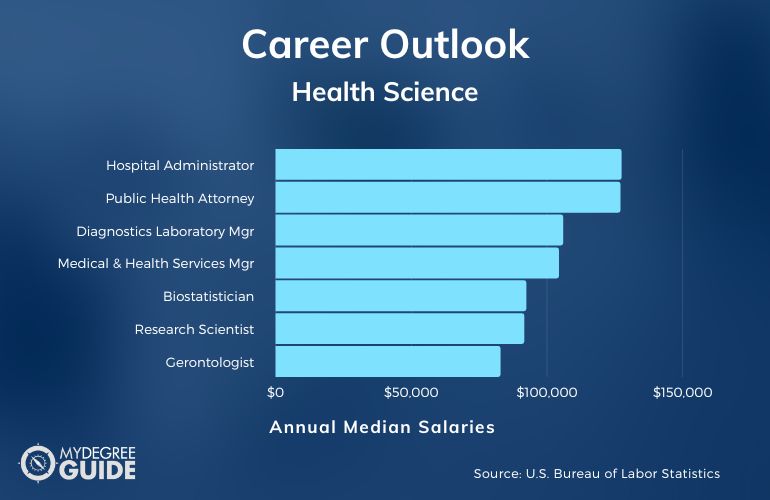
A health science degree can be a lucrative investment. It can qualify you for many different jobs in many different industries, and the highest salaries top $100,000.
According to the Bureau of Labor Statistics, some careers in the health science field include:
- Hospital Administrator ($127,340)
- Public Health Attorney ($126,930)
- Diagnostics Laboratory Manager ($105,840)
- Medical and Health Services Manager ($104,280)
- Biostatistician ($92,270)
- Research Scientist ($91,510)
- Gerontologist ($82,770)
- Industrial Hygienist ($77,750)
- Occupational Health and Safety Specialist ($76,340)
- Nurse Educator ($75,470)
- Epidemiologist ($74,560)
- Healthcare Consultant ($73,230)
- Health Promotion Program Coordinator ($51,730)
- Medical Records and Health Information Technician ($44,090)
One thing to note is that salaries can fluctuate depending on skill, experience, and degree level. For example, the lowest-earning epidemiologists took home $49,140 per year, while the highest-earning enjoyed $126,040 per year. That’s a big salary range for the same job.
Professional Organizations for Those with a Health Science Degree

Professional organizations can provide you with a lot of support as you get your health science degree. They’re also good resources for finding jobs and staying updated on the industry once you graduate.
While there’s no specific organization for health science, you can find several for related fields:
American Association of Healthcare Administrative Management
The American Association of Healthcare Administrative Management is for professionals who work in healthcare administration. It’s centered around education, information exchange, and advocacy for various causes.
It also administers exams for qualifications like Certified Revenue Cycle Executive (CRCE) and Certified Compliance Technician (CCT).
American College of Health Care Administrators
Another organization for healthcare administration, the American College of Health Care Administrators offers workshops, scholarships, networking events, mentoring programs, and many other resources for people in the industry.
They even have a student membership that costs much less than regular membership.
American Public Health Association
The American Public Health Association is one of the oldest organizations in public health, and it boasts more than 25,000 members worldwide.
Members can attend events, get career counseling, receive monthly issues of The American Journal of Public Health, and enjoy discounts on books and continuing education classes.
American Society for Clinical Laboratory Science
The American Society for Clinical Laboratory Science offers support for both students and professionals who work in laboratory science. From job listings to live-streamed events, it’s designed to keep members on the cutting edge of the industry.
It also offers certified P.A.C.E. courses for continuing education.
Health Care Administrators Association
A nonprofit organization, the Health Care Administrators Association is dedicated to advocacy and education in healthcare. It holds two conferences per year, and it offers access to everything from industry publications to discounts on special products and services.
Society for Public Health Education
The Society for Public Health Education is for educators, administrators, policymakers, and anyone else who has an interest in public health. Students are welcome to join, as well. They have membership packages for both currently-enrolled college students and “transitional” students who recently graduated.
Accreditation for an Online Health Science Degree
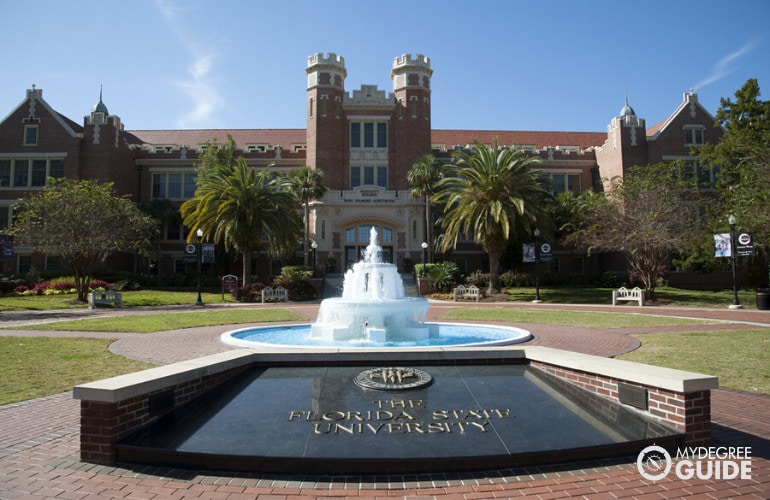
Accreditation is a review process that colleges undertake to prove their educational value. Employers usually expect to see an accredited school on your resume, and your financial aid can depend on your school’s accreditation.
There are many different accrediting organizations in America. The big ones are the six regional accreditation boards: They’ve divided the country into regions, and each board looks at colleges in certain states.
For example, the New England Commission of Higher Education (NECHE) covers New England states such as Maine, Massachusetts, and Rhode Island.
There are also accrediting boards just for health science programs:
- The Council on Education for Public Health is for public health schools and programs. It’s recognized by the U.S. Department of Education, and it’s accredited colleges all over the country.
- The National Environmental Health Science and Protection Accreditation Council is devoted to environmental health science. It only accredits a small number of STEM-based, practice-heavy degree programs.
You can search both of these websites to find lists of their accredited schools.
Financial Aid for a Bachelor’s in Health Science Online

One of the best sources for financial aid is the Free Application for Federal Student Aid (FAFSA). Not only is it free to apply, but depending on your family’s income level, it could offer you free money for college.
These are called grants. They’re issued by the government, and you don’t have to pay them back.
If the grants don’t cover all of your tuition, you can apply for student loans. They come in both subsidized and unsubsidized form, and this is also based on your income level. FAFSA offers several loan options, or you can apply for private loans from banks or other lenders.
Scholarships are another possibility. There are many different funds for healthcare students, and they range from one-time $500 payouts to recurring rewards that offer $20,000 or more.
You’ll need to poke through your options to figure out which scholarships can be applied to your unique circumstances and career goals.
What Can You Do with a Health Sciences Degree?

A health science degree is a non-vocational degree, which means that it doesn’t teach you a specific skill or trade. Instead, it gives you knowledge that can be applied to many different industries, including:
- Biology
- Education
- Public Health
- Healthcare Administration
- Law
- Medicine
- Information Technology
If you already know that you’d like to work in one of these fields, look for a health science degree that offers an emphasis or concentration in your area of interest.
What Healthcare Degrees Can You Get Online?
Some healthcare degrees are impossible to get online. For example, if you want to be a brain surgeon, you’ll need to enroll in a traditional, campus-based med school.
However, there are other healthcare programs that are available online. You can get qualified for work as a nurse, lab technician, medical assistant, dental assistant, and anesthesia technologist. You could also find degree programs for community health workers and other social service jobs.
A health science degree is just the beginning. For the dedicated student, there are dozens of healthcare qualifications that can be obtained online.
How Long Does It Take to Get a Health Science Degree Online?
Your total time in school will depend on the degree that you’re seeking. Associate degrees usually take two years; bachelor’s degrees usually take four years; master’s degrees usually take two years.
However, there are ways to speed up your education. A traditional or online accelerated health science degree program can get you out of school faster than your peers, and high course loads and special credits like CLEP can save you in semester time. Talk to an academic advisor at your chosen school to learn more.
List of Schools Offering Online Health Science Degree Programs
Methodology: The following school list is in alphabetical order. To be included, a college or university must be regionally accredited and offer degree programs online or in a hybrid format.

- Bachelor of Applied Science (BAS) in Health Sciences
APUS is accredited by the Higher Learning Commission.

- Bachelor of Applied Science in Health Sciences
Arizona State University is accredited by the Higher Learning Committee.

- Bachelor of Science in Health Science
Bellevue University is accredited by the Higher Learning Commission.

- BS in Health Sciences
Eastern Washington University is accredited by the Northwest Commission on Colleges and Universities.

- Bachelor of Science in Health Science
FGCU is accredited by the Southern Association of Colleges and Schools Commission on Colleges.

- Bachelor of Science (BS) – Behavioral Health Science
Grand Canyon University is accredited by the Higher Learning Commission.

- Bachelor of Science in Health and Wellness
- Bachelor of Science in Health Care Management
Granite State College is accredited by the New England Commission of Higher Education.

- BS in Health Sciences
Indiana University is accredited by The Higher Learning Commission.
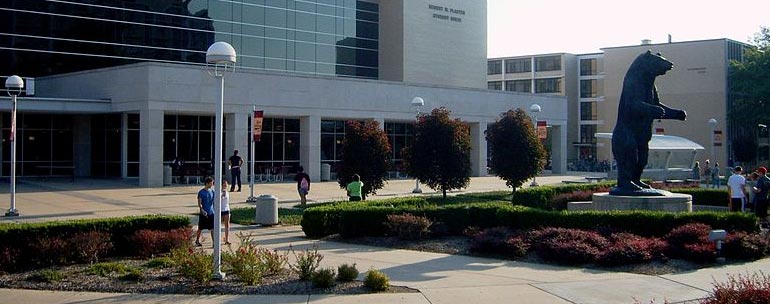
- Bachelor of Science in Health Services
Missouri State University‘s regional accreditation is through the Higher Learning Commission.

- Bachelor of Science in Health Science
Northern Kentucky University is accredited by the Southern Association of Colleges and Schools Commission on Colleges.

- Bachelor of Applied Science in Allied Health (BASAH)
Northwestern State University is accredited by the Southern Association of Colleges and Schools Commission on Colleges.
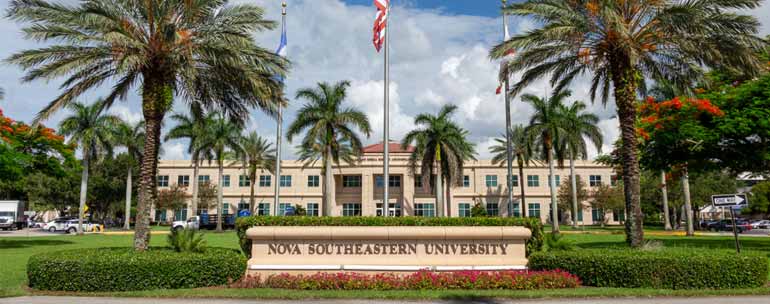
- Bachelor Of Health Science (B.H.Sc.)
NSU is accredited by the Southern Association of Colleges and Schools Commission on Colleges.

- Bachelor of Science in Health Sciences
The Ohio State University is accredited by the Higher Learning Commission.
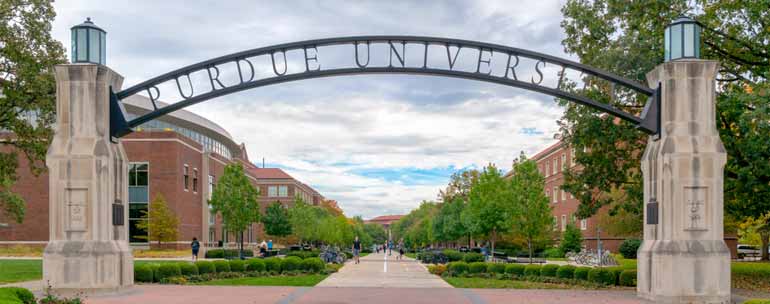
- Bachelor of Science in Health Science
Purdue Global is accredited by The Higher Learning Commission.

- B.S. in Health Sciences
Rutgers University is accredited by the Middle States Commission on Higher Education.

- B.S. in Health Studies
Texas Woman’s University is accredited by the Southern Association of Colleges and Schools Commission on Colleges.

- BS in Health Informatics and Information Management
- BS in Health Services Administration
The University of Central Florida is accredited by the Southern Association of Colleges and Schools Commission on Colleges.
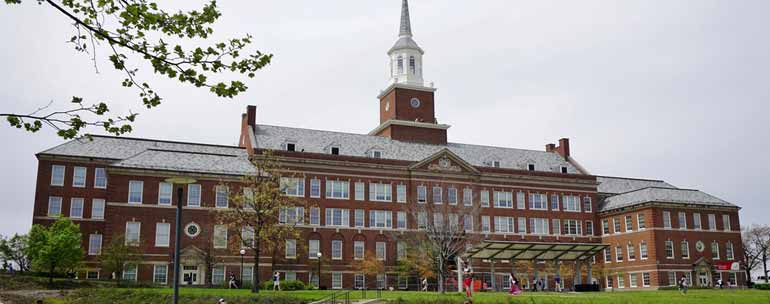
- Bachelor of Science in Health Sciences: Behavior & Occupation Studies
University of Cincinnati is accredited by the Higher Learning Commission.

- Bachelor of Science in Health Care Science – Allied Health Completion Option
University of Colorado – Colorado Springs is accredited by the Higher Learning Commission of the North Central Association.

- Bachelor of Health Science in Health Science (BHS)
The University of Missouri is accredited by the Higher Learning Commission.

- Bachelor’s Degree in Health Sciences
University of South Dakota is accredited by the Higher Learning Commission.

- Bachelor in Health Sciences
The University of Vermont is accredited by the New England Commission of Higher Education.

- B.S. Health Sciences (General) Program
- B.S. Health Sciences, Healthcare Administration Specialization
- B.S. Health Sciences in Public Health Specialization
The University of West Florida is accredited by the Southern Association of Colleges and Schools Commission on Colleges.

- Bachelor of Science in Health & Wellness Management Consortium Program
- Bachelor of Science in Health Information Management & Technology Consortium Program
University of Wisconsin-La Crosse is accredited by the Higher Learning Commission.
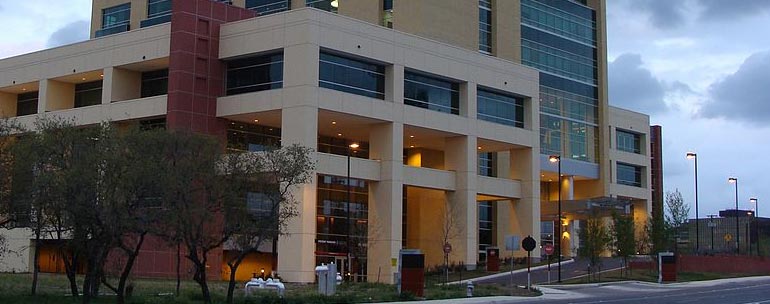
- Bachelor of Science in Emergency Health Sciences
The University of Texas Health Science Center at San Antonio is accredited by the Commission on Colleges of the Southern Association of Colleges and Schools.
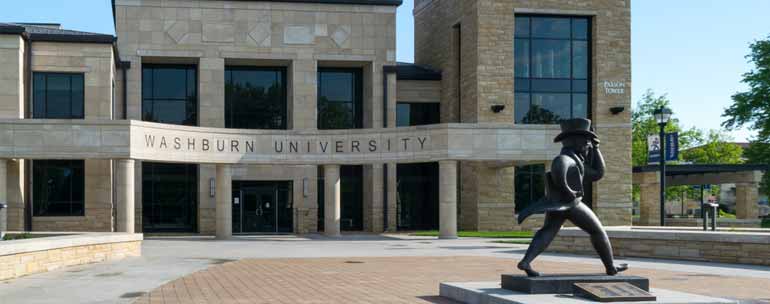
- Bachelor of Health Science (BHS)
Washburn University is accredited by the Higher Learning Commission.

- Bachelor in Health Sciences
West Texas A&M University is accredited by the Southern Association of Colleges and Schools Commission on Colleges.

- BS in Health Sciences
West Virginia State University is accredited by the Higher Learning Commission.

- Bachelor of Science in Health Sciences
Western Kentucky University is accredited by the Southern Association of Colleges and Schools Commission on Colleges.

- B.S. in Health Sciences
Wilmington University is accredited by the Middle States Commission on Higher Education.
Is a Health Science Degree Worth It?

Yes, a health science degree is worth it for many students. The Bureau of Labor Statistics is projecting 15% job growth in healthcare occupations for the next 10 years. Common careers in this field include healthcare consultant, nurse educator, industrial hygienist, medical and health services manager, and hospital administrator.
With a job growth that is much faster than the average for all occupations, a health science degree can open a lot of doors. Whether you’re seeking an entry-level job with an associate degree or a stable, high-paying career with a bachelor’s or master’s degree, a solid education is always a worthwhile investment for the future.

